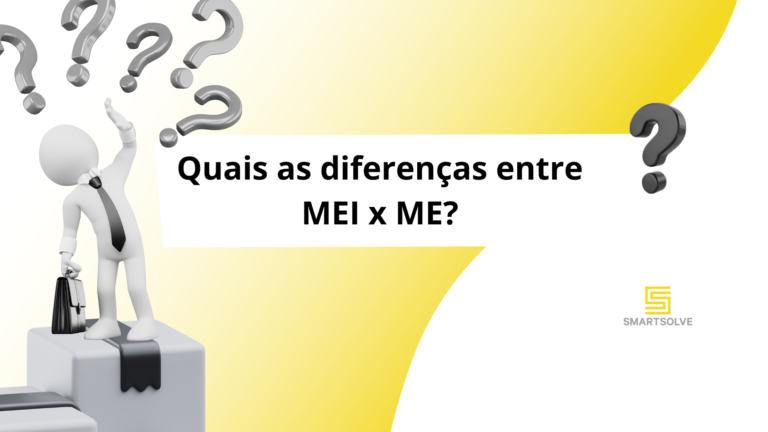When starting a business, one of the first decisions entrepreneurs need to make is about the legal structure of their company. In Brazil, two popular options for small business owners are MEI (Individual Microentrepreneur) and (Microempreendedor Individual) e a ME (Microenterprise). While both have their advantages, there are significant differences between these two categories. In this article, we will explore these differences to help you make the decision that best suits your needs.
What is MEI (Individual Microentrepreneur)?
The Individual Microentrepreneur (MEI) is a category created by the Brazilian government to formalize small businesses and individual entrepreneurs. It is ideal for individuals who work on their own and wish to legalize their activities in a simplified manner.
Key Characteristics of MEI:
- Limited Annual Revenue: MEI has a limit on annual revenue, which in 2021 was up to R$ 81,000. This means that your gross revenue cannot exceed this amount.
- Simple Opening Process: The process of opening an MEI is streamlined, making it easier to formalize small businesses.
- Low Taxes: MEI pays a fixed monthly fee covering taxes like INSS (National Social Security Institute), ICMS (State Sales Tax), and ISS (Municipal Service Tax). This fee is reduced compared to other business categories.
- Social Security Benefits: MEIs are entitled to social security benefits, such as retirement and sick pay, as long as they keep their contributions up to date.
- Activity Restrictions: Some activities cannot be registered as MEI, such as consulting and the provision of high-level technical services.
What is an ME (Microenterprise)?
On the other hand, a Microenterprise (ME) is a broader category of businesses with a more flexible legal structure. Microenterprises are not subject to the revenue limits imposed on MEIs and can operate in various business areas.
Key Characteristics of an ME:
- Higher Annual Revenue: MEs have a higher annual revenue limit than MEIs, which varies according to current legislation.
- Growth Potential: Unlike MEI, Microenterprises do not have growth restrictions and can expand their businesses without worrying about revenue limits.
- Tax Regime: MEs have more flexible tax regime options, such as Simples Nacional (Simplified Tax Regime), Lucro Presumido (Presumed Profit), and Lucro Real (Actual Profit), allowing you to choose the most suitable for your circumstances.
- Greater Variety of Activities: Microenterprises can engage in a wide range of activities, from commerce to more specialized services.
Which Is the Right Choice for You?
The choice between MEI and ME depends on your business's characteristics and goals. If you are just starting and have limited revenue, MEI can be a simpler and more cost-effective option. However, if you plan to expand, have significant revenue, or desire a more flexible tax structure, a Microenterprise may be the right choice.
In any case, it is essential to consult with an accountant or a business law specialist to assess the best option for your specific situation. Both categories have their advantages and disadvantages, and making the right choice can make a significant difference in the success of your venture.
(ARAUJO,Robson. What´s the differences between MEI x ME?)











